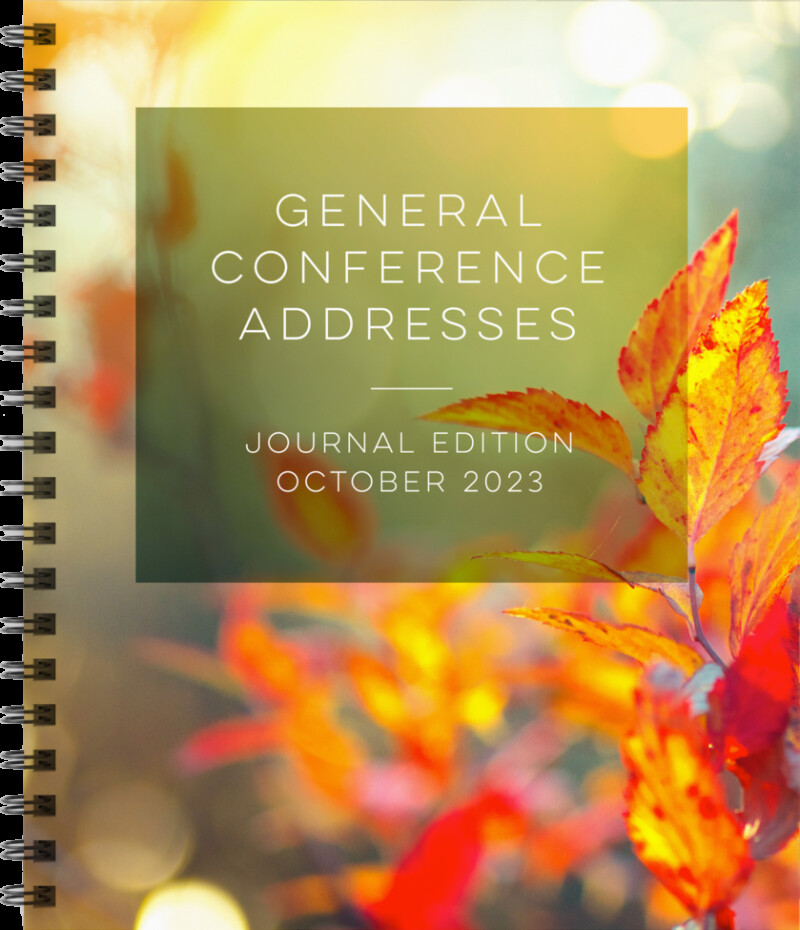
Rabbi Joe Charnes is no stranger to study. He earned a BA in psychology and then went on to study in traditional Jewish seminaries in California, New York, and Israel. And for the past 20 years, he has studied Judaism and Christianity comparatively and has been involved in numerous Jewish-Christian multifaith events.
He is also a frequent attendee to general conference. His love and gratitude for the talks given is nothing short of inspiring—and his approach to studying is one we could all benefit from.
He was invited to attend by a Latter-day Saint friend, an invitation Rabbi Charnes is deeply grateful for.
“As I grew in understanding and the knowledge of your faith, I began to really connect more with your community. … the beauty of the soul that your community strives to uncover and discover. There’s deep, deep wisdom in your faith tradition,” Rabbi Charnes said on a recent episode of the Church News podcast. “I’ve learned a tremendous amount about the soul and about myself and about life.”
Rabbi Charnes went on to observe that many people tend to mainly praise the service and kindness Latter-day Saints offer to the world.
“But that kindness and decency didn’t just come from nowhere,” he says. “It came from a wisdom that you are rooted in and that you revere and that you study and that you try to live from.”
Later he added, “I know I’m a better person [now], and I thank you for the gift of general conference.”
Perhaps part of the reason Rabbi Charnes’s draws so much from general conference is his approach to the talks. Rabbi Charnes suggests we consider our ability to hear.
“The first and most important quality you have to develop as far as a spiritual life, [is] the ability to hear. … It requires real presence and willingness to receive so that we can understand,” he says. “Deep hearing leads to deep understanding, which leads to a life that is deeply transformed, because you’re now living or heeding the will or the wisdom of our Maker.”
He invites us to consider if our ears are truly open as we go over the talks for the next six months. For “ears are the gateway to mind and doors of heart.” As we revisit the messages, we should do so more slowly and with more awareness. This will allow us to uncover the layers of meaning in a speaker’s message, going beyond just what was spoken.
“It’s an active-passive process. It’s active in the sense of ‘I have to participate.’ There’s some assembly required …; I have to be present and participate. But now I have to surrender and begin listening so I can hear more deeply and then begin to understand the second meaning,” Rabbi Charnes said.
As we come to understand the text, it will impact the way we live. General conference will create “blossoming fruits” in our lives, as Rabbi Charnes said.
“And that’s [why] I’m so inspired in terms of LDS thought, not just LDS kindness; yes, everybody praises you for your kindness, because you have to be blind not to see the light and the love that you bring into the world,” he said. “I began studying your tradition, I realized the root of your light, the root of your beauty, the beauty of that love that you live, is your wisdom.”
To learn more about which conference talks were Rabbi Charnes's favorite, listen to his episode of the Church News podcast.
▶ You may also like: How heeding prophets’ counsel changed President Russell M. Nelson’s life


